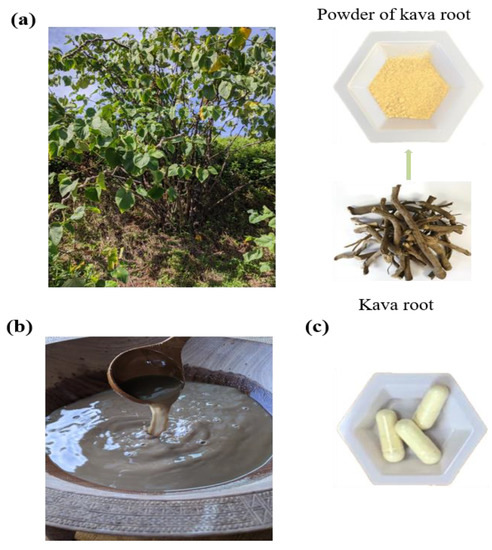
Kava
Kava or kava kava is a crop of the Pacific Islands. The name kava is from Tongan and Marquesan, meaning 'bitter'; other names for kava include ʻawa, ʻava, yaqona or yagona, sakau, seka, and malok or malogu. Kava is consumed for its sedating effects throughout the Pacific Ocean cultures of Polynesia, including Hawaii, Vanuatu, Melanesia, and some parts of Micronesia, such as Pohnpei and Kosrae. The root of the plant is used to produce a drink with sedative, anesthetic, and euphoriant properties. Its active ingredients are called kavalactones. A systematic review done by the British nonprofit Cochrane concluded it was likely to be more effective than placebo at treating short-term anxiety. Moderate consumption of kava in its traditional form, i.e., as a water-based suspension of kava roots, has been deemed to present an "acceptably low level of health risk" by the World Health Organization.
